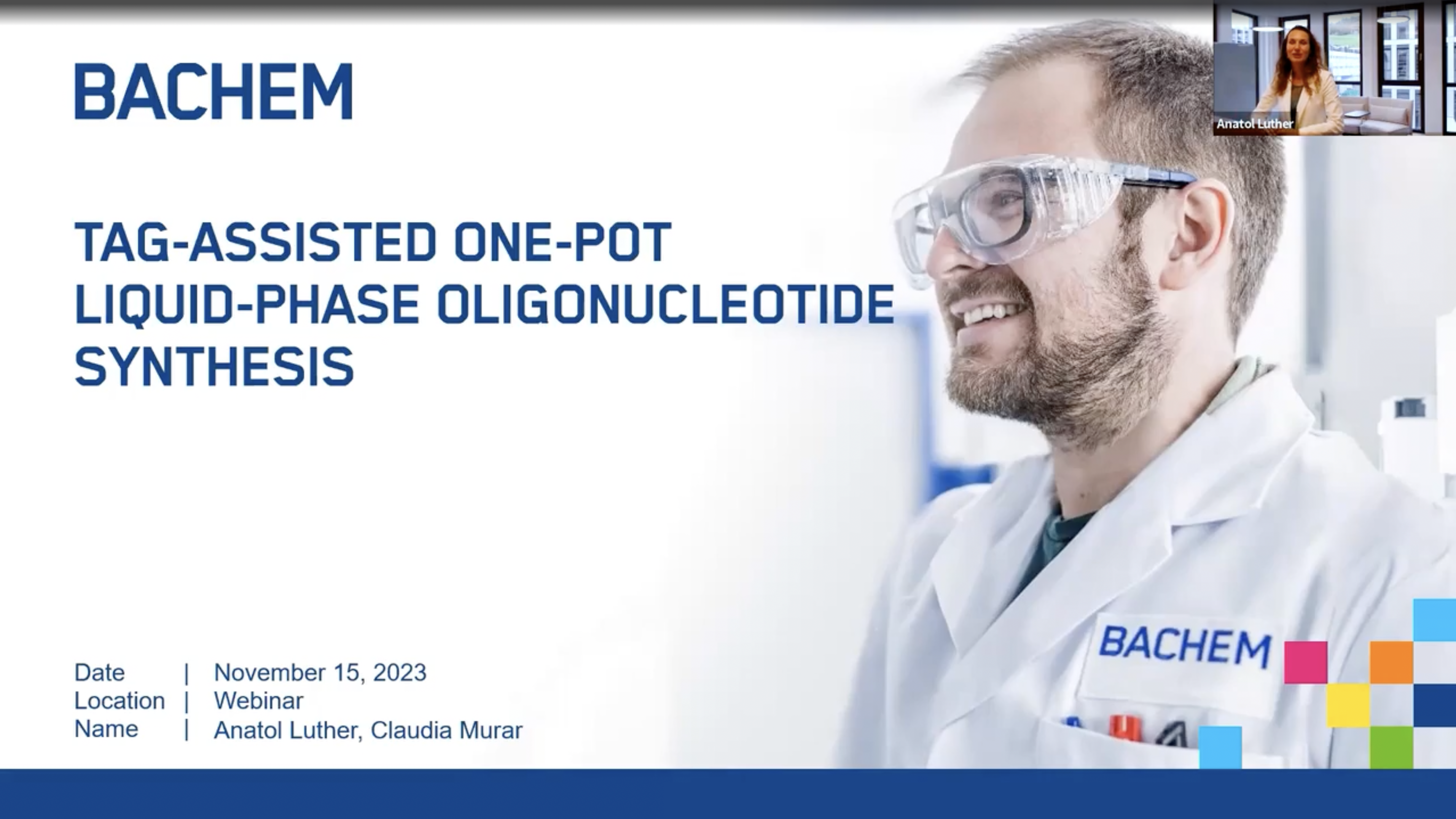

Today's technologies for producing oligonucleotides come with a high burden in terms of process mass intensity. Sustainable alternatives are needed and manufacturers are investigating into and new ways of synthesizing & purifying oligos. The main objective is to reduce the consumption of organic solvents in these processes.
Promising options regarding synthesis of these substances are hybrid approaches combining the best of the two traditional synthesizing techniques solution-phase oligonucleotide synthesis and solid-phase oligonucleotide synthesis (SPOS). The new tag-assisted one-pot liquid-phase oligonucleotide synthesis (TOP LPOS) uses liquid anchor molecules, called tags or pseudo-solid phase protection groups, on which the growing oligonucleotide is assembled.
This means the advantage of SPOS, which is the separation of the product from byproducts and reagents, is preserved using the tag instead of a solid-phase resin. Limitations of SPOS such as a restricted loading capacity of the solid-phase resin is not a factor in TOP LPOS. That's why a higher volume yield can be achieved.
- Oligonucleotide synthesis technologies at Bachem
- How the tag-assisted LPOS works
- Current standards of LPOS
- A TOP LPOS concept study and the feasibility
- Further optimization and an outlook

Copyright © 2025 American Chemical Society | 1155 Sixteenth Street NW | Washington, DC 20036 | View our Privacy Policy